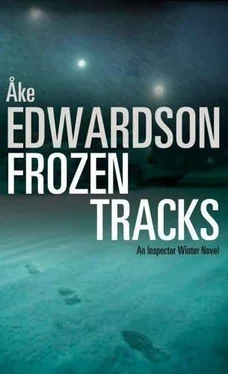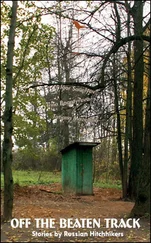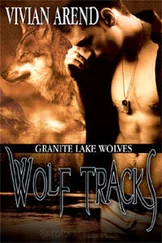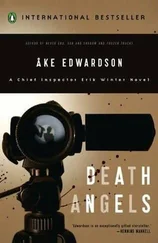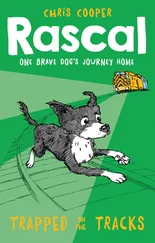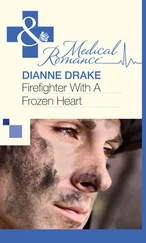
Åke Edwardson
Frozen Tracks
The third book in the Erik Winter series, 2007
ONE OF THE CHILDREN JUMPED DOWN FROM THE JUNGLE GYM into the sandbox below, and he laughed out loud, suddenly, briefly. It looked like good fun. The man wanted to join in, but that would mean getting out of his car, walking around the fence and in through the gate, and climbing up the structure, which was red and yellow.
A drop of rain fell on the window, then another. He looked up and could see the sky was darker now. He turned his attention back to the playground and the trees beyond it and along the left-hand side. There were no leaves on the branches; the trees were bare. Things you couldn’t see in the summer were visible now. The city was naked. That thought had struck him as he drove there through the wet streets. This city is naked again. He didn’t like it. It was almost worse than before.
Now another child jumped down. He could hear the boy laughing as he lay in the sand; he could hear that even when the radio was on, as it was now. He wasn’t listening to it. He was listening to the boy’s laughter. He was laughing himself now. He wasn’t happy, but he was laughing because hearing the child laughing, it sounded like so much fun to be a child getting up to climb the jungle gym and jump down once more.
It stopped raining even before it had really started. He rolled down the window a bit more. There was a smell of autumn turning into winter. Nothing else smelled like it. Leaves lay on the ground and had turned black. People were walking along paths through the park. Some were pushing strollers. A few people were standing around in the playground, grown-ups. There weren’t many of them. But lots of children, and many of them were laughing.
He had also laughed, not now, but when he was a child. He could remember laughing once when his mom had lifted him up high and his head had bumped the ceiling lamp and the light up there had gone out when she put him down again.
Somebody said something on the radio. He didn’t hear what as he was still in a land where he was a small boy who’d come down to the ground again and his mom had said something that he could no longer remember; he couldn’t remember any of it, but she had said something, and afterward he had spent a long time thinking about what she had said, how important it was to him, those last words she had said to him before walking out of the door never to come back.
She never ever came back.
He could feel his cheek was wet, like the windshield would have been if it had continued raining. He heard himself saying something now but didn’t know what it was.
He looked back at the children.
He could see the room again, it was later but he was still a small boy; he sat looking out of the window and there was rain on the windowpane, and he’d made a drawing of the trees outside that didn’t have any leaves left. His mom was standing beside the trees. If he drew a car, she was inside it. A horse, and she was riding it. A little child, and she was holding its hand. They were walking on grass where red and yellow flowers were growing.
He drew the fields. He drew an ocean on the other side of the fields.
Every night he made a bed for his mom. He had a little sofa in his bedroom and he made her a bed on it, with a blanket and a pillow. If she suddenly appeared she’d be able to sleep there. Just lie down without him needing to get the bed ready, it would be all done.
Now he rolled down the window and took a deep breath. Rolled it up again and started the engine and drove around the playground so that he could park right outside the entrance. He opened the door. There were several other cars around. He could hear the children’s voices now, as if they were sitting in his car. As if they’d come to his car, to him.
There was music on the radio now, and that voice he recognized came back and said something. It was a voice he’d heard several times. It spoke when he drove home from work during the day. Sometimes he drove at night.
He could feel how wet the ground was under his feet. He was standing beside his car but didn’t know how he’d gotten there. It was strange; he’d thought about the radio and then suddenly he was standing beside the car.
Children’s laughter again.
He was standing by the playground that was next to the trees that no longer had any leaves, only bare branches.
The video camera in his hand was hardly any bigger than a pack of cigarettes. A little bit bigger, perhaps. Amazing what they could make nowadays. He could hardly hear the faint hiss when he pressed the button and filmed what he could see.
He moved closer. There were children all around but he couldn’t see a single grown-up. Where were all the grown-ups? The children couldn’t be left alone, they might get hurt when they jumped down from the red and yellow jungle gym or leapt from the swings.
The jungle gym was right here, next to the entrance. He was standing by it.
A leap.
“Wheee!”
Laughter. He laughed again himself, jumped, no, but he could have jumped. He helped the little boy to his feet. Up again, up, up! Lift him up to the sky!
He took it from his pocket and held it out. Look what I’ve got here.
It was three paces to the entrance. Then four more to the car. The boy’s steps were shorter, six to the entrance and eight to the car.
Children, children everywhere, it struck him that he was the only one who could see the boy now, keep an eye on him. The grown-ups were standing over there with their coffee cups steaming in the air that was cold and damp, just like the ground.
More cars. The boy couldn’t be seen at all now, not from any direction. Only he could see him, he was holding his hand now.
“There we are. Yes, I’ve got a whole bag full, how about that? So, let’s open the door. Can you climb in all by yourself? You are smart.”
***
The back of the student’s head had been struck in such a way that the wound looked like a cross, or something very similar. His hair had been shaved off, making the wound all the more visible. It was horrific, but he was still alive. Only just; but he had a chance.
As they left the hospital Bertil Ringmar’s face looked blue in the lights of the front entrance.
“I thought you should see this,” said Ringmar.
Winter nodded.
“What kind of weapon would make a wound like that?” wondered Ringmar.
“Some sort of pick-ax. Maybe a farm tool. A kitchen utensil. A gardening tool. I don’t know, Bertil.”
“There’s something about it, I don’t know. It reminds me of something.”
Winter zapped the doors of his Mercedes. The parking lot was deserted. The car lights flashed like a warning.
“We’d better have a word with Old MacDonald,” said Winter as they drove down the hill.
“Don’t joke about it.”
“Joke about it? What is there to joke about?”
Ringmar made no reply. Linnéplatsen was just as deserted as the parking lot had been.
“This is the third one,” said Ringmar.
Winter nodded, loosened his tie, and unfastened the top two buttons of his shirt.
“Three kids more or less beaten to death with something, but we can’t figure out what,” said Ringmar. “Three students.” He turned to look at Winter. “Is there a pattern?”
“You mean the fact that they’re all students? Or that we think the wounds look like a cross?”
“That they’re all students,” said Ringmar.
“Students are a big group,” said Winter, continuing west. “There must be thirty-five thousand of them in this city.”
Читать дальше
